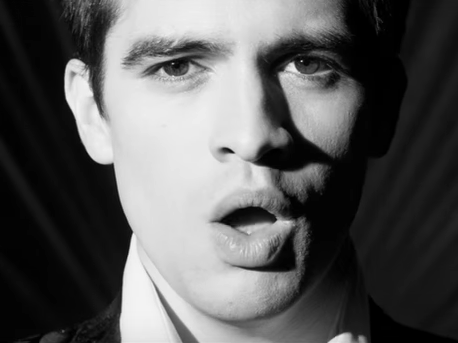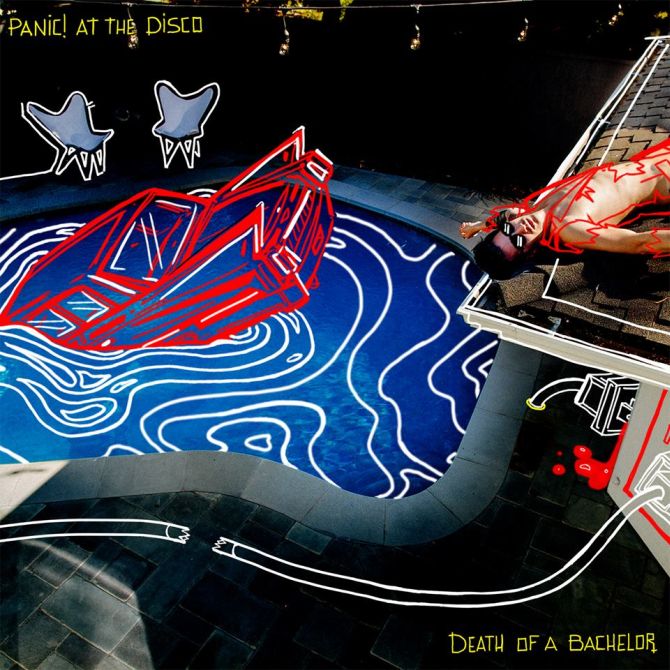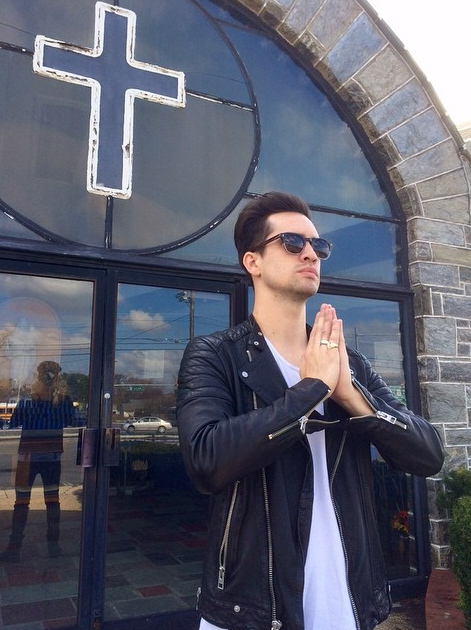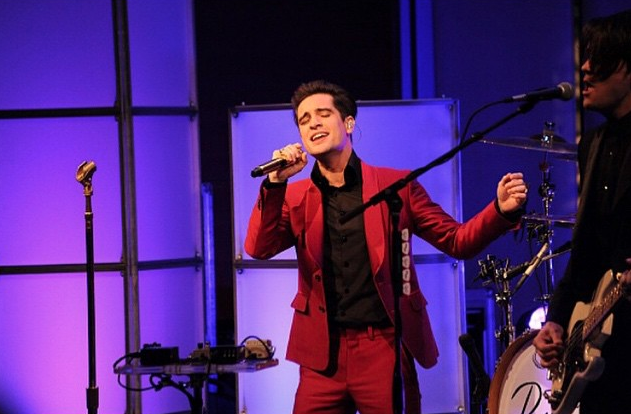What does "The Good, the Bad, and the Dirty" by Panic! at the Disco mean?
"The Good, the Bad, and the Dirty" Lyrics Meaning
Panic! at the Disco is really winning me over with the music on Death of a Bachelor. These songs are groovy and fun. Have you been able to appreciate how well put together the music is here? It's part Fallout Boy, part 1950's, part 1990's, and it's awesome. "The Good, the Bad, and the Dirty" is mostly Fallout Boy, and it's pretty intense.
Honestly, at this point, I've already written a ton of song meaning explanations for Death of a Bachelor and Panic! at the Disco, and usually at this point in the meaning post I talk about the album or the hype for the song--something like that. I think, however, that there's really not that much more to say, so I invite you to check out my other song meaning explanations for Panic! at the Disco songs. If you like the rest of this post, you should come back here and check out those others.
The Line-by-line Song Meaning of "The Good, the Bad, and the Dirty"
You already know the title (and the Intro is the same), but since the chorus goes over that, we're going to come back to that later. I should also warn you that Urie himself, when talking about this song, admits that he wasn't quite sure what all of the lyrics meant when he originally wrote them. Sometimes he just picks them because they sound "badass" (see video below).
With that in mind, we have to proceed carefully. Usually, I try to explain what the artist means by a song, and I'm still going to try to do that. But in this case, we may be trying to figure out something that not even the artist knew.
For now, let's get started with Verse 1. Urie sings, "Truth is that it was always going to end." Currently, "The Good, the Bad, and the Dirty" sounds like a song about a relationship; perhaps it could even be that the relationship is a metaphor for the deeper meaning. Whatever it is, it's something that's gotten Panic! at the Disco thinking: "The symphony buzzing in my head."
The next two lines sound either like Urie made the best of a bad situation or like other people took advantage of him: "Took a market of filth / And sold like summer." I think the first explanation fits with the feeling of the song better. The music is empowering, violent, and energetic, so it makes sense that Urie is coming out on top.
The verse continues: "True all of the good girls act so good / 'Til one of them doesn't wait their turn." Urie's pulling together pictures and ideas in this first verse; he will use them later on to tie together his big idea or prime concept. In this case, one of the "good girls"--perhaps women who wait on others or who fit into society nicely--decides she wants what she wants now. She's going to take it.
Urie sings, "Turn the memory to stone / And carve your shoulder." He wants the past to be in the past (sometimes people cope by getting commemorative tattoos, which would explain the carved "shoulder"). The one-off, "Hey, holy roller," is an acknowledgment of others watching Urie and the "good-girl-gone-bad's" progress towards something new. In either case, the first line of the verse has come true, and something has ended, just like Urie knows it was always going to.
In the Chorus, Panic! at the Disco sings, "If you wanna start a fight / You better throw the first punch / Make it a good one." Who Urie is singing to here, I'm not sure. I've heard theories that it could be an opponent he's fighting or his followers who he's trying to encourage. I think the encouraging followers theory is likely more sound. Verse 1 makes me think this is really about Urie telling people to fight for what they want; the feel of the song suggests that we need to break the status quo and go for something more.
The chorus continues: "And if ya' wanna make it through the night / You better say my name like / The good, the bad, and the dirty." This seems to be a call to his crowd. He's trying to appeal to a wide range of people and to gather them around his example of breaking free. Urie's breaking free, and he wants others to do like him, no matter who they are.
The last line is a play on the title of the movie, "The Good, the Bad, and the Ugly." In it, three men fight each other for a stash of Confederate gold--all of them are criminals, but Blondie (the good) has at least some ethical codes, Angel Eyes (the bad) tortures and kills sadistically, and Tuco (the ugly) is a foolish oaf who is still dangerous.
My theory is that Urie's song is based on that title but that it plays on the idea that while some people are clearly good or clearly struggle with being bad, there are some people who are "ugly." We or they might think they're bad, but it's not that simple. Urie's band attracts young people who are still forming their identities in ways that more established society doesn't always appreciate. While those people may not look "good" to others, Urie recognizes that they may not necessarily be "bad." Even then, he wants the "bad" to know that they have a place in his group along with the "good" and the "ugly" or the "misunderstood."
In the Second Verse, Urie sings, "I know what it's like to have to trade / The ones that you love for the ones you hate." This could be a reference to the transitional state of Panic! at the Disco's band member roster. Urie's the only remaining original member, and many have come and gone.
Urie then sings, "Don't think I've ever used a day of my education." Life has never been simple, and the answers were never in a textbook. Urie's had to learn things for himself.
He continues: "There's only two ways that these things can go / Good or bad and how was I to know / That all your friends won't hold any grudges / I got the final judgment." I think Urie is using the metaphor of a finished relationship to show us how he's moving on after turmoil in his life. He's seizing the day, maintaining the theme of the song thus far. He knew he was taking a risk as he moved on, but in the end, the risk was worth it, and he's now on top--he's the one making the "final judgment."
The Bridge is the last unique stanza of the song, and it's a good place for Urie to bring some final perspective on this song. He sings, "And you been gone so long / I forgot what you feel like." This bridge makes the song seem to be about a relationship, but I maintain that it's a metaphor. The other stanzas don't support it enough.
The actual purpose of this bridge, I argue, is that Urie is moving past difficult life situations. He's "not gonna think about that right now." Instead he's "gonna keep getting underneath you / And all our friends want us to fall in love." This sounds like Urie is undermining his enemy--the person who's been holding him back--while everyone around who doesn't know the story just wants him to stay with that person.
Is "The Good, the Bad, and the Dirty" about Panic! at the Disco?
Based on some of the reading I've been doing, I could guess that "The Good, the Bad, and the Dirty" might be about Urie's thoughts on the band. Recently, the band has lost many of its members, and many fans likely wanted them to get back together. There's a good chance that this song is Urie saying, "We are not getting back together, and I've moved on to some place better."








